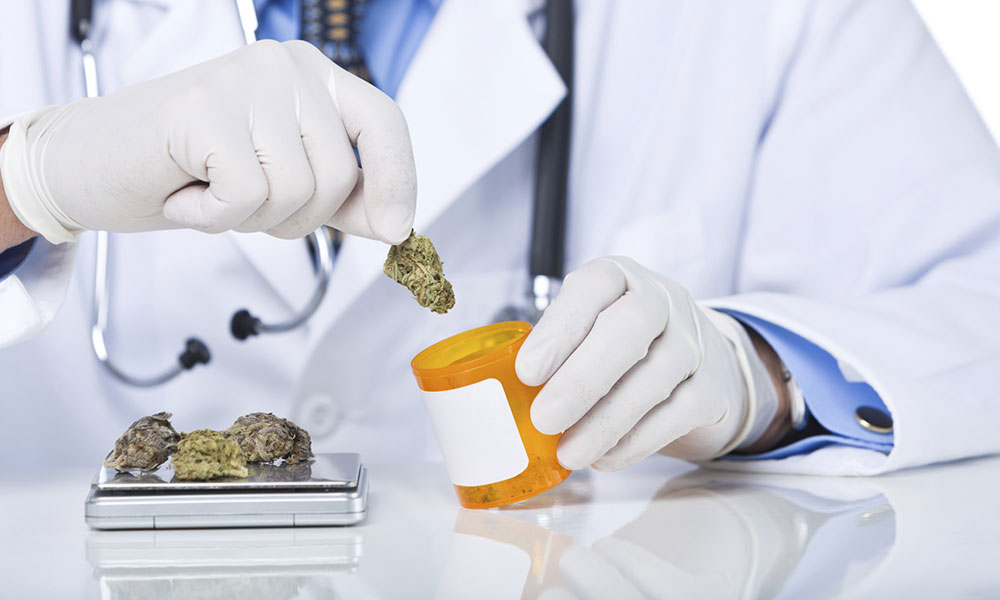
Pediatrics Group Revisits Marijuana Policy
In an updated policy statement this week, the American Academy of Pediatrics reiterated marijuana's risks to children. But it argues for different approaches to penalties and research, and limited “compassionate use” in treating sick kids.
A leading medical association isn’t backing down from its opposition to marijuana legalization, but it is urging a more lenient approach to penalties along with regulatory changes that would encourage more research on medical uses of the drug.
In an updated policy statement posted online on Monday and scheduled to be published in the March issue of the journal Pediatrics, AAP reaffirmed its opposition to legalization for adults because of the risks it poses to children.
“We know marijuana can be very harmful to adolescent health and development. Making it more available to adults—even if restrictions are in place—will increase the access for teens,“ Seth Ammerman, M.D., a member of AAP’s Committee on Substance Abuse and a coauthor of the policy statement, said in a news release. “Just the campaigns to legalize marijuana can have the effect of persuading adolescents that marijuana is not dangerous, which can have a devastating impact on their lifelong health and development.”
While opposing legalization, the academy said it supports decriminalization of the drug. AAP noted that tough punishments for marijuana-related offenses can have serious negative consequences for young people, such as preventing them from qualifying for loans and certain jobs in the future, which far outweigh the penalties’ deterrent effects.
“The AAP strongly supports the decriminalization of marijuana use for both minors and young adults and encourages pediatricians to advocate for laws that prevent harsh criminal penalties for possession or use of marijuana,” the policy statement says. “A focus on treatment for adolescents with marijuana use problems should be encouraged, and adolescents with marijuana use problems should be referred to treatment.”
Need for Research
The academy continues to oppose using marijuana as a medical treatment without FDA approval, but it supports additional research on medical uses. To facilitate that work, AAP says the drug should be removed from the list of Schedule I controlled substances under the Controlled Substances Act, which includes drugs that have a high potential for abuse and few known medical uses, such as heroin and LSD.
The academy argues that marijuana should be placed on the Schedule II list, which includes commonly prescribed medications such as Adderall and Ritalin, to allow for more research into potential pharmaceutical uses of the drug. The Schedule II list also includes illegal substances such as cocaine and some forms of opium, which are generally perceived as illicit drugs but have legitimate medical uses. The prior version of the policy, published in 2004, did not recommend a schedule change.
“The AAP strongly supports research and development of pharmaceutical cannabinoids and supports a review of policies promoting research on the medical use of these compounds,” the organization said.
But, noting that some seriously ill children “cannot wait for a meticulous and lengthy research process,” AAP also recommended that “some exceptions should be made for compassionate use in children with debilitating or life-limiting diseases.”
Regulators Reconsider
The AAP policy statement comes at a time when the FDA is conducting a review of the substance’s safety and effectiveness, an effort that could lead to a schedule change down the road.
Speaking to The Huffington Post, FDA press officer Jeff Ventura said the agency welcomed AAP’s comments.
“FDA can’t comment on the suggestion to change the schedule for marijuana, as the latest FDA review of the issue—known as the 8-factor analysis—is currently ongoing,” Ventura told the website. “However, FDA agrees with the call by the AAP for rigorous scientific research into the uses of marijuana … [and] supports those in the medical research community who seek to study marijuana.”
Marijuana for recreational use is currently legal in Colorado and Washington state; voters in Alaska, Oregon, and the District of Columbia approved legalization measures in the 2014 elections but those measures have not yet taken effect. Twenty-three states allow pot to be used for medical reasons. An upcoming report by ArcView Market Research suggests that as many as 18 states could legalize recreational marijuana use by 2020.
(iStock/Thinkstock)






Comments